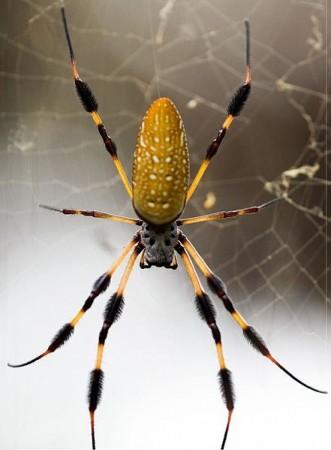
A man from Lakeland, Florida, who has reportedly suffered complications after been bitten by a spider has died.
Ronald Reese, 62, after six months of treatment couldn't survive the spider bite, as it became worse and developed into a blister on the back of his neck, which affected his spinal cord, according to Stephen Nelson, Polk County Medical Examiner.
According to Reese's father, he was bitten by a brown recluse spider in August 2013. "He was working in an old house tearing out the existing walls and ceilings and replacing them. Brown recluse spiders like to live in those old houses," Fox News quoted him.
The type of the spider that bit him was never examined, but medical records show some statistics on death associated to spider bite. According to American Association of Poison Control Centers, two people between 2001 and 2005 have died from spider bites. Both are believed to have been bitten by brown recluse spiders.
Though all spiders are poisonous in a way, which helps them kill and digest their prey, the brown recluse spider is one of the few spiders that are dangerous to humans, said Logan Randolph, a biology professor from Polk State College.
A bite from a brown recluse spider makes small wounds that later develop into a blister. The venom may result into causing severe lesions by damaging skin tissues, according to the Centers for Disease Control and Prevention.
However, the bites typically aren't lethal. In most spider bites, complications arise mostly if there's some secondary factor. If the person has a specific allergic reaction, if their health was compromised in some other manner, or if the bite causes an open wound with a secondary infection," Randolph said.
"Spiders typically avoid humans. Most spiders aren't going to attack you," Randolph said. "It's when you trap them, or you're moving something out of a cabinet and your hand brushes them - it's typically a defense. They react rather than attack", he added.












